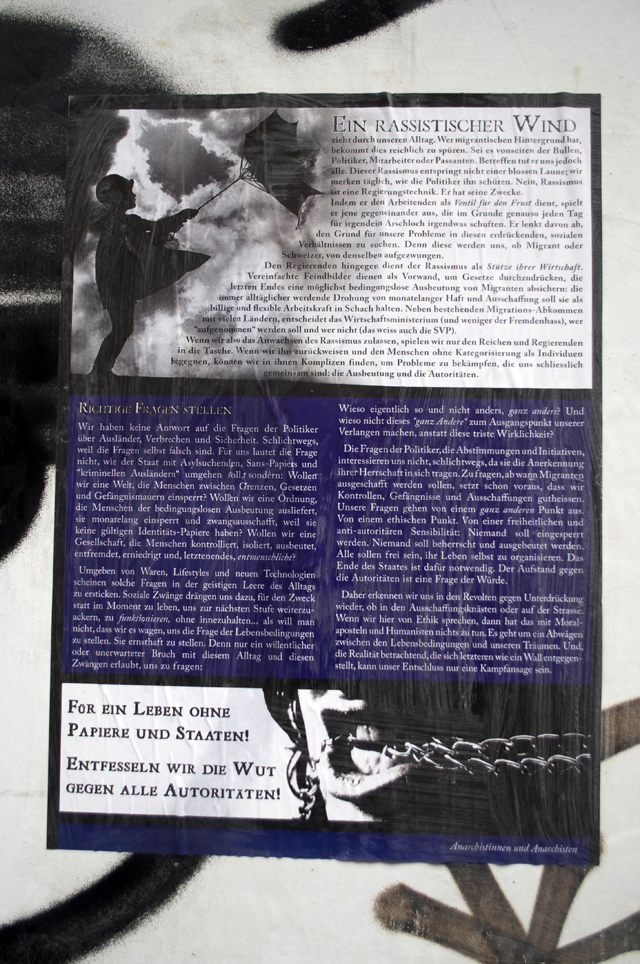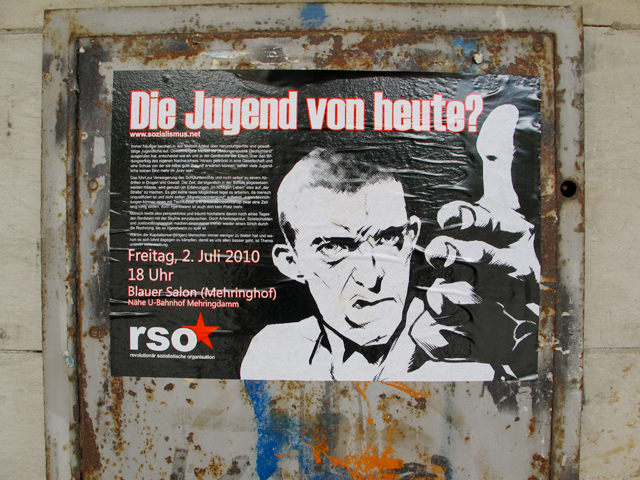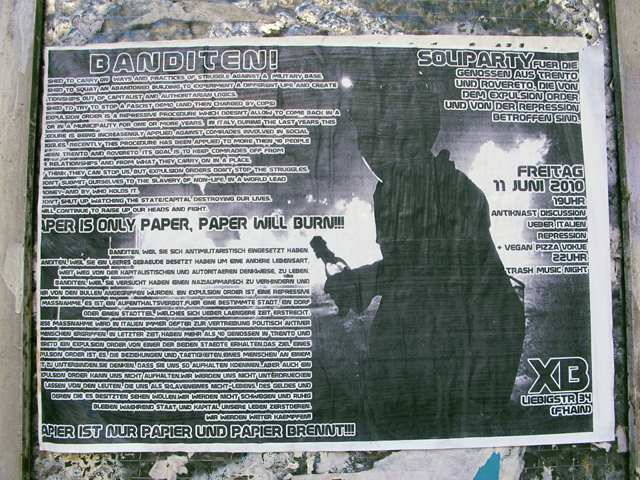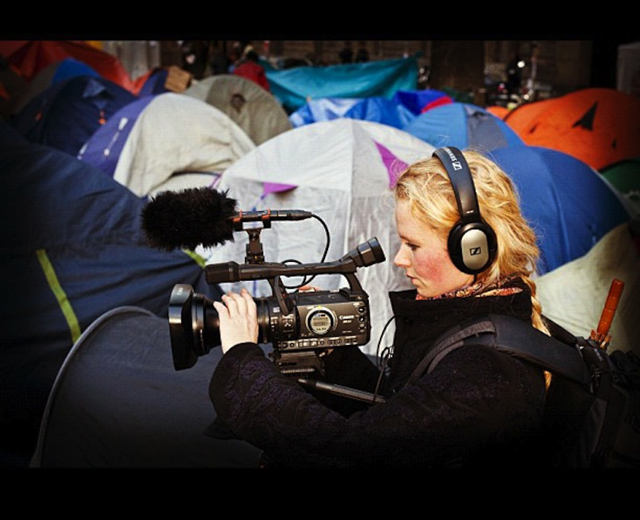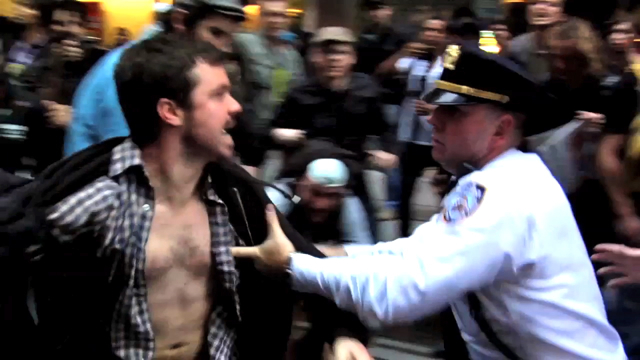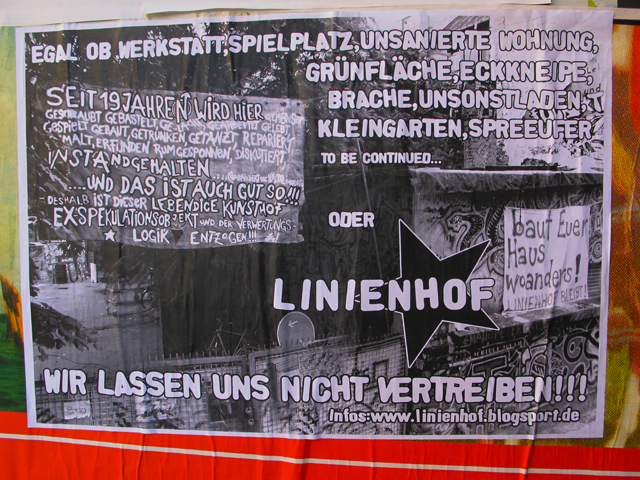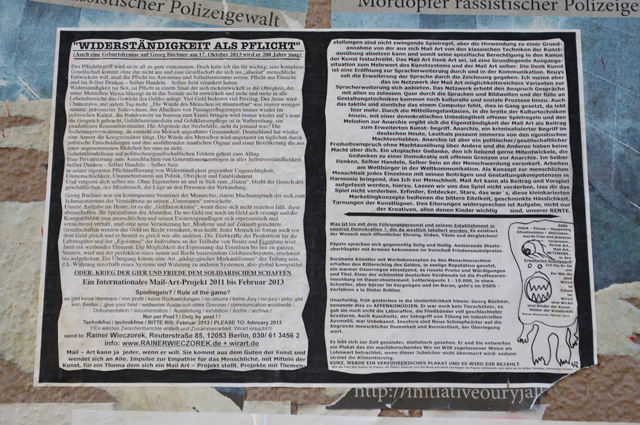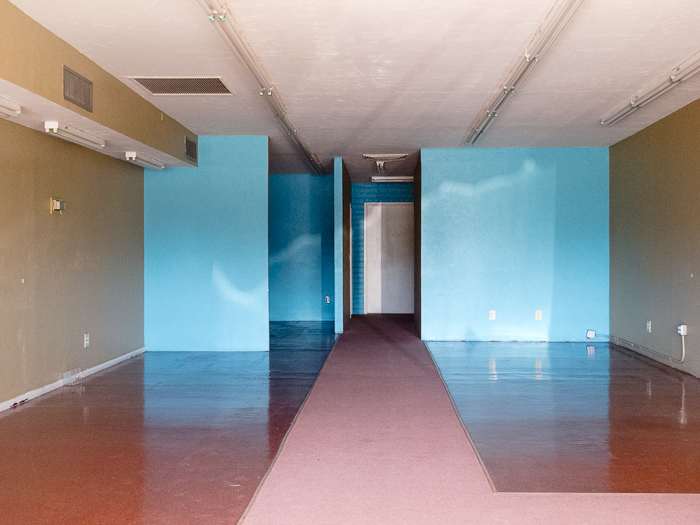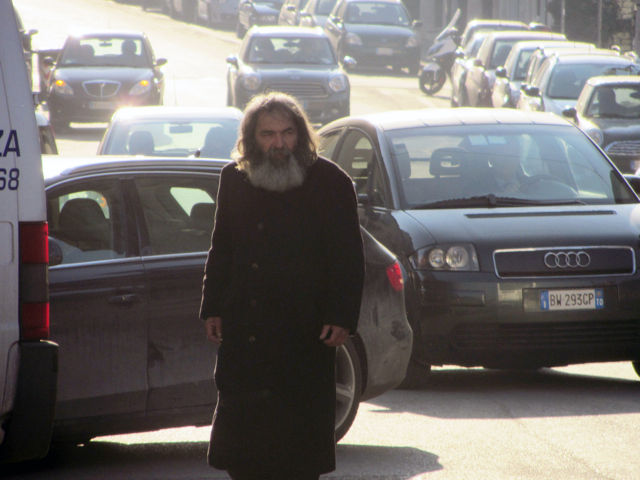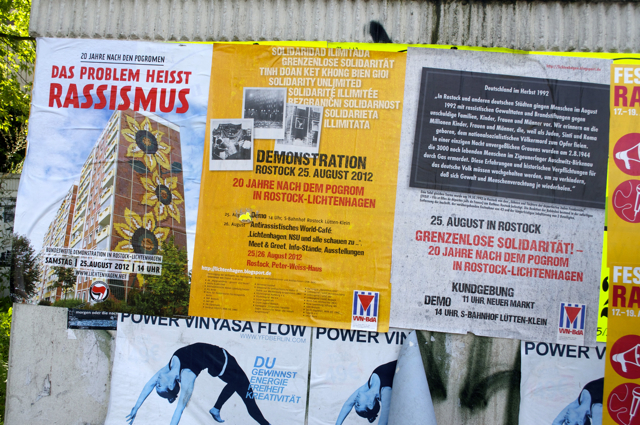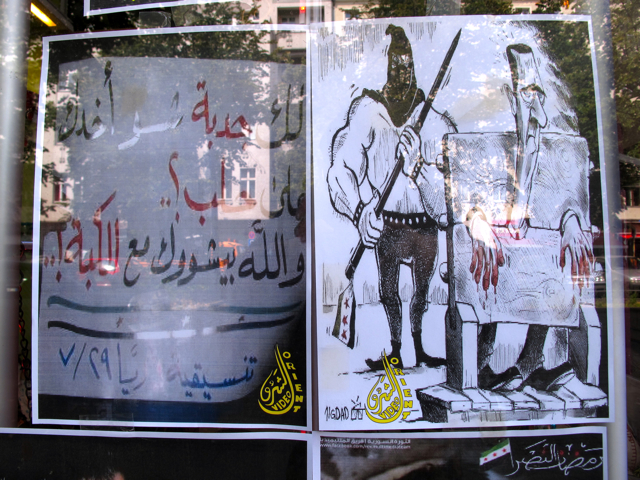The radical flyers one sees pasted up in European cities frequently try to make up for the blind spots of the postwar Left establishment. That means prioritizing multiculturalism, pro-immigrant policies and a decentralized, anarchistic mindset that repudiates the longstanding belief that achieving a measure of political power in the bourgeois state is a worthwhile goal. This tract photographed in Zurich earlier this year is a fine example: (More…)
Visual
To someone who lives in a less intensely intellectual environment than Berlin, the wordiness of the flyers pasted over the city’s walls is surprising. But activists wouldn’t bother to include so much fine print if they thought no one was going to read it. Frequently, the text adds crucial detail to the bold strokes of a flyer’s big-font message, revealing subtlety in its come-hither slogan. (More…)
Wherever walls, fences and windows are plastered with flyers, we know that the pace of daily life slows down there. Maybe it’s a corner where people wait for a bus or train. Maybe it’s a meeting ground, where the impulse to linger overrides the call of the next errand. Maybe it’s simply the sort of empty surface that demands to be acknowledged by those who pass by on foot. (More…)
Hashtags were prominent, whether in the below screen titles, or in the title of the films themselves. ##12M mai no hem marxat (15Mbcn.tv) provided a birds-eye-view of Plaça Catalunya on the first anniversary of the 15 May protests that launched the Indignados movement (and inspired OWS.) The title means “We have not left.” (More…)
Michelle Fawcett, co-organizer of Occupy the Film Festival said people had asked about the title of the event. Did she mean “Occupy: The Film Festival” suggesting a festival about the Occupy movement, a completely suitable topic for a program taking place in the weekend leading up to S17, the first anniversary of the birth of Occupy Wall Street (OWS)? Or, did she mean, “Occupy the Film Festival”? (More…)
During the Cold War, Berlin’s divided status made it possible for the already expansive city to become a haven for ways of living that more conventional cities made difficult. In the wake of the counterculture, this isolated, divided metropolis became a proving ground for turning theory into practice. (More…)
Like many of the politically-oriented flyers to be found in Berlin, this one impresses through sheer volume. Unlike some of the ones featured in Souciant, neither the main text here — translated below — or the supplementary ones that accompany it are particularly elegant. But the scattered, fragmentary quality of the language, its rhetorical sloppiness are in some ways a breath of fresh air. (More…)
Before the housing bubble burst, before Lehman Brothers fell, and before sub-prime loan losses were making the news, I became subconsciously aware of the growing number of vacant commercial spaces around me. I began looking through dirty windows to better see into the interior spaces left behind when businesses fail. They seemed filled with sadness, with the emotions of loss contained within their empty walls. (More…)
They call it “poverty porn.” Published in The Guardian, an August 14th feature discloses the results of an Advertising Standards Authority survey, warning British charities against using severe imagery in adverts intended to highlight homelessness. Accordingly, using photos of compromised persons constitutes “shock tactics” that risk “exploiting” their subjects, and putting off the public. (More…)
August 22nd marks the twentieth anniversary of the Rostock riots. Targeting Roma and Vietnamese migrants, the two days of violence that followed are considered amongst the worst race riots to hit post-war Germany. Many activists contend that the upheaval helped move the country to the right on questions concerning multiculturalism and immigration. (More…)
The Syrian civil war has caused an explosion of political graffiti, cartoons, and flyers in the country’s many Diasporas. The following examples, which contain many Syrian slang words, were photographed in Berlin last month. They give an impression of increased bitterness and radicalization directed against an autocrat who, little over a year ago, was said to be unaffected by the Arab Spring. (More…)
